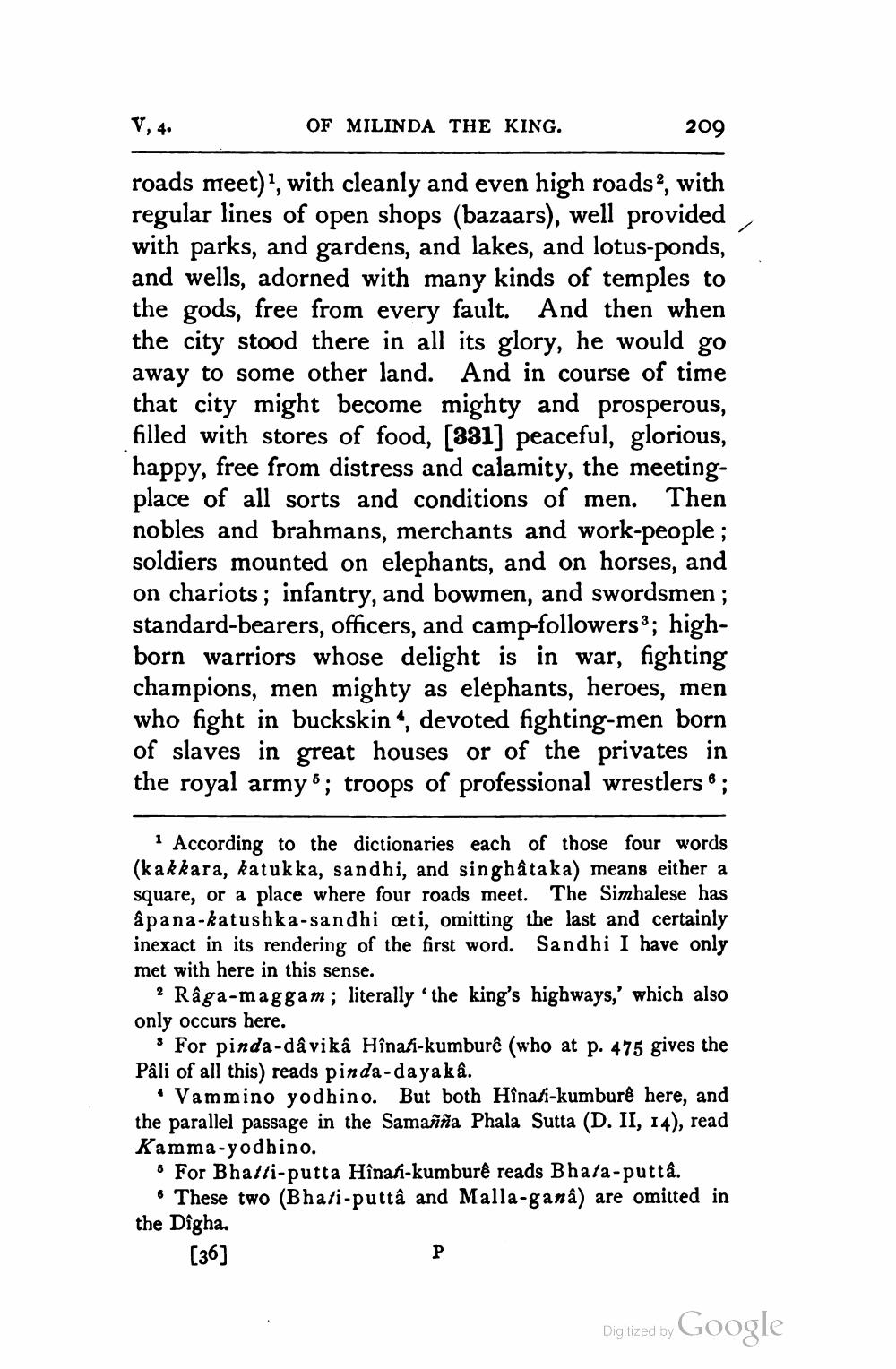________________
V, 4.
OF MILINDA THE KING.
209
roads meet) , with cleanly and even high roads?, with regular lines of open shops (bazaars), well provided with parks, and gardens, and lakes, and lotus-ponds, and wells, adorned with many kinds of temples to the gods, free from every fault. And then when the city stood there in all its glory, he would go away to some other land. And in course of time that city might become mighty and prosperous, filled with stores of food, [331] peaceful, glorious, happy, free from distress and calamity, the meetingplace of all sorts and conditions of men. Then nobles and brahmans, merchants and work-people; soldiers mounted on elephants, and on horses, and on chariots; infantry, and bowmen, and swordsmen; standard-bearers, officers, and camp-followers 3; highborn warriors whose delight is in war, fighting champions, men mighty as elephants, heroes, men who fight in buckskin“, devoted fighting-men born of slaves in great houses or of the privates in the royal army b; troops of professional wrestlers & ;
1 According to the dictionaries each of those four words (kakkara, katukka, sandhi, and singhâtaka) means either a square, or a place where four roads meet. The Simhalese has apana-katushka-sandhi cti, omitting the last and certainly inexact in its rendering of the first word. Sandhi I have only met with here in this sense.
? Râga-maggam; literally the king's highways,' which also only occurs here.
: For pinda-dâ vika Hînafi-kumburê (who at p. 475 gives the Pali of all this) reads pinda-dayaka.
- Vammino yodhino. But both Hînati-kumburê here, and the parallel passage in the Samañña Phala Sutta (D. II, 14), read Kamma-yodhino.
• For Bhatti-putta Hînati-kumburê reads Bhata-putta.
. These two (Bhati-puttâ and Malla-ganâ) are omitted in the Digha.
[36]
Digitized by Google




